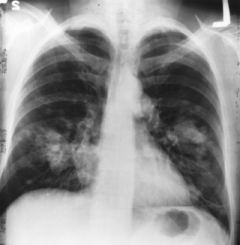NIH study followed daughters of women given diethylstilbestrol during pregnancy and found increased fertility problems and cancer risks
A large study of the daughters of women who had been given DES, the first synthetic form of estrogen, during pregnancy has found that exposure to the drug while in the womb (in utero) is associated with many reproductive problems and an increased risk of certain cancers and pre-cancerous conditions. The results of this analysis, conducted by researchers at the National Cancer Institute (NCI), part of the National Institutes of Health, and collaborators across the country, were published Oct. 6, 2011, in the New England Journal of Medicine.
Beginning in 1940, diethylstilbestrol, known as DES, was used clinically to prevent certain complications of pregnancy. In the 1950s, clinical studies showed DES was ineffective for this purpose. In the late 1960s, an unusual occurrence of a rare cancer of the vagina among young women, called clear cell adenocarcinoma (CCA), was observed and subsequently linked to their exposure to DES while in the womb.


